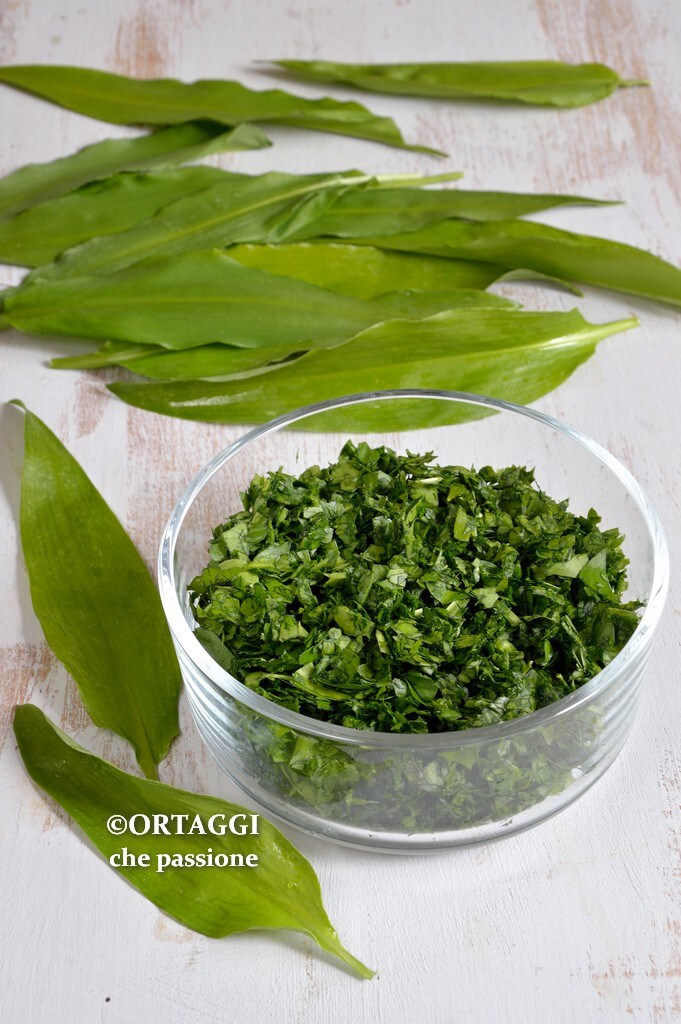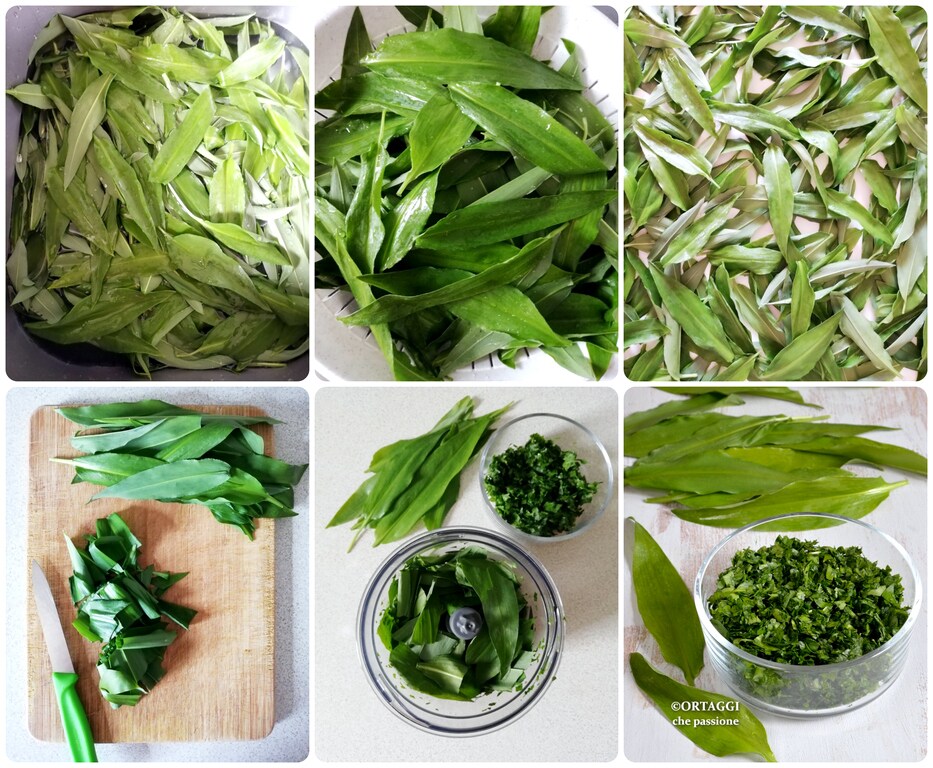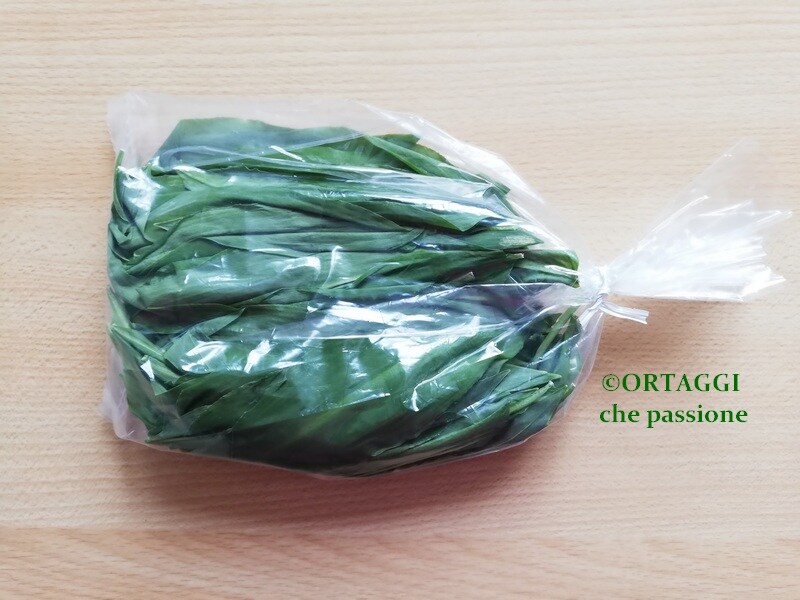Storing wild garlic is very easy.
SEASONALITY of wild garlic or wood garlic: the leaves grow from March to May, in the shade of the humid and fertile undergrowth or along streams, depending on the climate and altitude of the collection area (from 0 to 1500 m above sea level).
COLLECTING wild garlic – the leaves collected in March and April are fresher and more tender, while those in May are more fibrous. Beware it can be confused with the leaves of meadow saffron, arum, and lily of the valley, all of which are poisonous. To identify it without a doubt, rub a leaf between your fingers and smell its strong garlic odor; it grows abundantly in the undergrowth, creating a fragrant carpet, and the leaves have a thin, individual stem.
Dr. Michela Trevisan in her book lists its properties: “Wild garlic is a spontaneous plant possessing all the properties of cultivated garlic in higher concentrations. It has strong antibiotic and antifungal actions, naturally lowers bad cholesterol levels in the blood, is useful for diarrhea and intestinal worms, lowers blood pressure, stimulates blood circulation, clears respiratory passages of mucus, and reduces fever.“
RECIPES with wild garlic

- Difficulty: Easy
- Cost: Economical
- Rest time: 6 Hours
- Preparation time: 10 Minutes
- Portions: 100 grams
- Cooking methods: No Cooking Required
- Cuisine: Healthy
- Seasonality: Spring
- Energy 149.00 (Kcal)
- Carbohydrates 33.06 (g) of which sugars 1.00 (g)
- Proteins 6.36 (g)
- Fat 0.50 (g) of which saturated 0.09 (g)of which unsaturated 0.26 (g)
- Fibers 2.10 (g)
- Sodium 17.00 (mg)
Indicative values for a portion of 100 g processed in an automated way starting from the nutritional information available on the CREA* and FoodData Central** databases. It is not food and / or nutritional advice.
* CREATES Food and Nutrition Research Center: https://www.crea.gov.it/alimenti-e-nutrizione https://www.alimentinutrizione.it ** U.S. Department of Agriculture, Agricultural Research Service. FoodData Central, 2019. https://fdc.nal.usda.gov
How to Store Wild Garlic?
Choose the smaller and more tender leaves that appear before the flower. Larger ones are fibrous, but still edible.
- 3.5 oz wild garlic
How to Store Wild Garlic?
Store in the refrigerator for a few days, preferably in a glass of water like flowers, or wrapped in damp paper towels.
Wash the wild garlic leaves, then let them dry on a towel for at least 8 hours or until completely dry.
Coarsely chop the leaves on a cutting board, then place them in the bowl of a chopper and mince them.
Now you can store them in the freezer inside a glass container. Alternatively, inside an ice cube tray with a little water or oil, and once the cubes are frozen, they can be transferred to a freezer bag.

Wash them, let them dry, and store them whole in a freezer bag. Remove excess air and seal the bag.

Wash the wild garlic leaves, let them dry for at least half a day on a clean towel. Then cut them into regular pieces with a smooth-bladed knife and dry them in an airy and shaded place.
Dried wild garlic loses a lot of aroma.
How to use stored wild garlic
Perfect for adding to soups, omelets, sauces, dressings, butter, cheese, and ricotta. Also good for flavoring fish and meat. Excellent for making pesto.
Perfect for adding to soups, omelets, sauces, dressings, butter, cheese, and ricotta. Also good for flavoring fish and meat. Excellent for making pesto.

